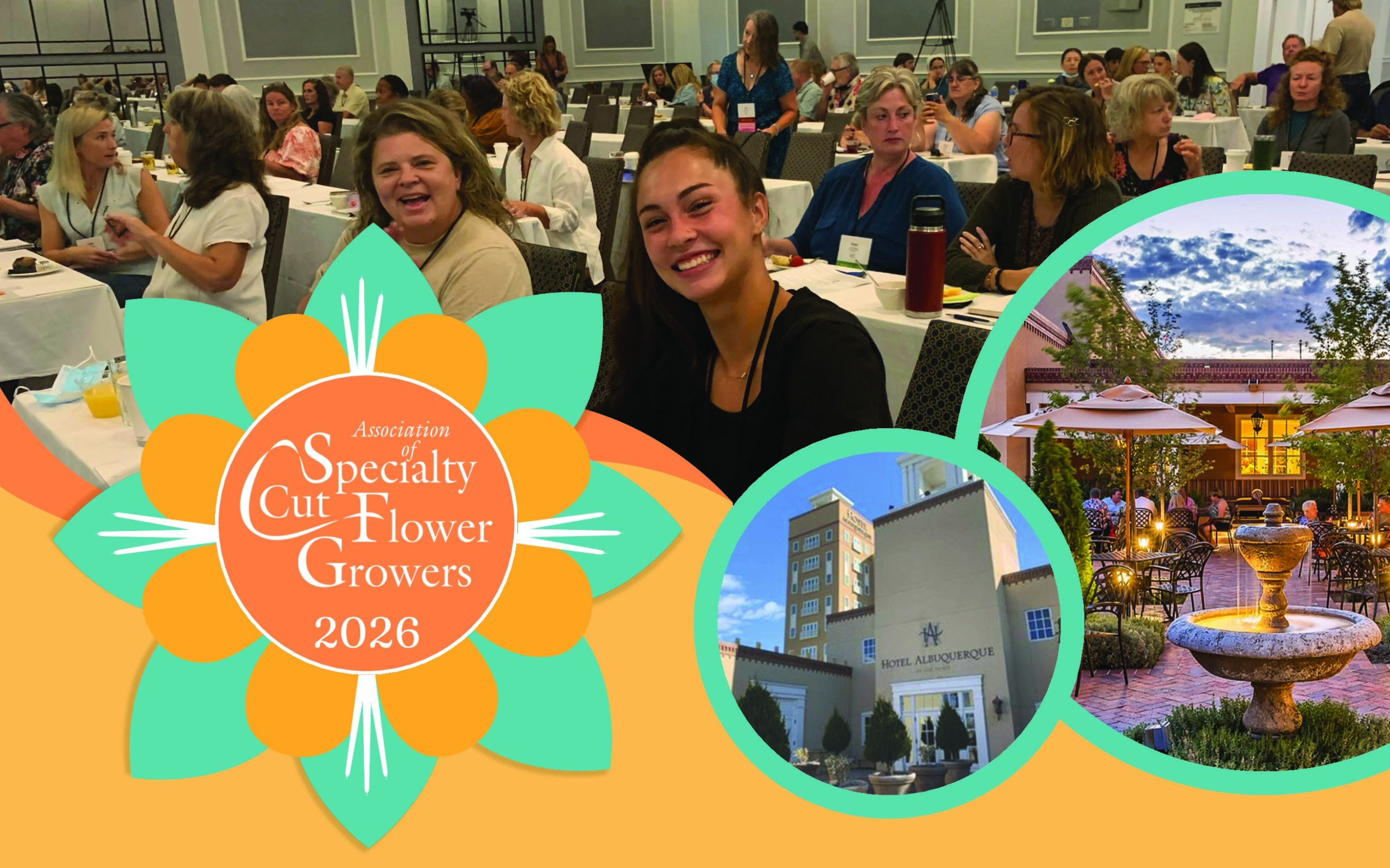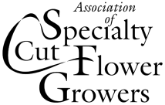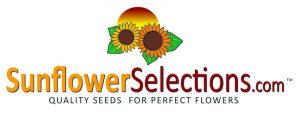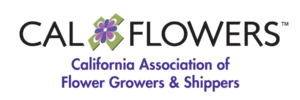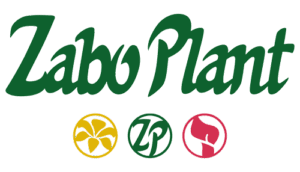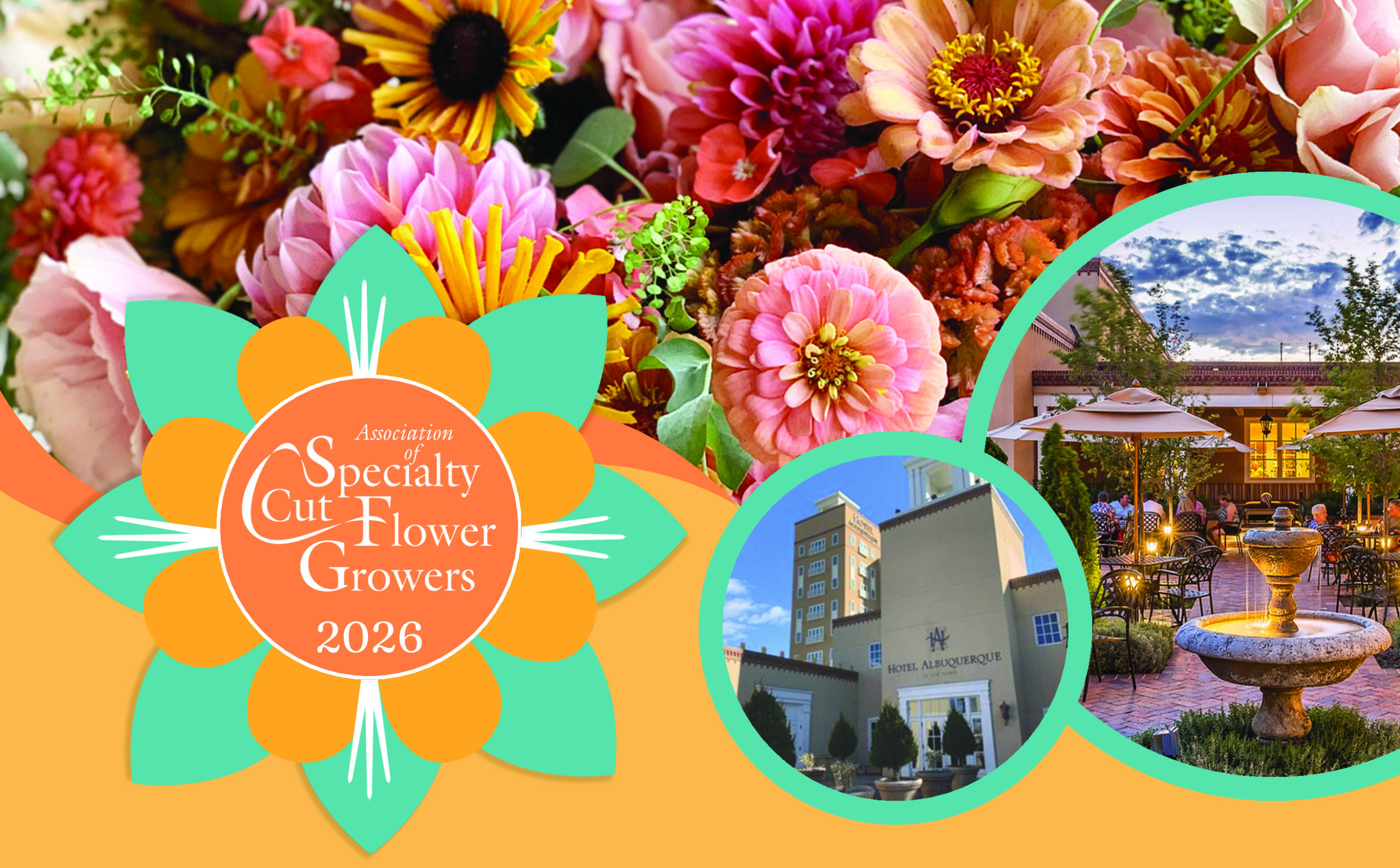
January 13-14, 2026
Hotel Albuquerque at Old Town
Albuquerque, New Mexico
EARLY BIRD REGISTRATION
$100 SAVINGS THROUGH MAY 31
$575
Member Rate after May 31
$675
Non-member Rate
$850
Conference Schedule
Monday, January 12
4:00 – 7:00 p.m. Registration
6:00 – 8:00 p.m. Welcome Reception
Welcome Reception
Start your 2026 ASCFG Conference experience with the Welcome Reception! After picking up your registration materials, this is the time to connect with friends and colleagues over drinks and light refreshments. A cash bar will be available.
Tuesday, January 13
General Sessions
7:15 a.m. – 8:00 a.m. Coffee and Refreshments
8:00 a.m. Welcome by the ASCFG President Val Schirmer
Val Schirmer, ASCFG President, Three Toads Farm, Winchester, Kentucky
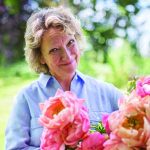 Val is the founder of Three Toads Farm in Winchester, Kentucky. She is renowned for her excellent bulb forcing and tabletop garden design skills, particularly with showy amaryllis and hardy spring bulbs. Val hosts on-the-farm workshops each year, and is a frequent and popular speaker on programs for both home gardeners and commercial growers. Currently in her second year as ASCFG President, Val Schirmer has previously served as Southeast Regional Director.
Val is the founder of Three Toads Farm in Winchester, Kentucky. She is renowned for her excellent bulb forcing and tabletop garden design skills, particularly with showy amaryllis and hardy spring bulbs. Val hosts on-the-farm workshops each year, and is a frequent and popular speaker on programs for both home gardeners and commercial growers. Currently in her second year as ASCFG President, Val Schirmer has previously served as Southeast Regional Director.
8:15 – 10:15 a.m. Developing a Marketing Plan for Your Cut Flower Farm
Session Description
Don’t miss this exciting workshop with the renowned Charlotte Smith of The Profitable Mindset Podcast! During this two-hour workshop, Charlotte will teach attendees the necessary components for a successful, full-fledged marketing plan for cut flower farming businesses. She will also guide attendees through the process of drafting their marketing plan during the workshop with a custom workbook designed for attendees by Charlotte. This workshop will include a Q and A session.
Attendees Receive
- 1 hour and 45 min presentation and workshop complete with a robust Q & A session.
- A free copy of Charlotte’s book, Farm Marketing from the Heart.
- A thorough, custom workbook that parallels the content of the workshop Charlotte is teaching.
Sponsored by:
Charlotte Smith, The Profitable Mindset Podcast
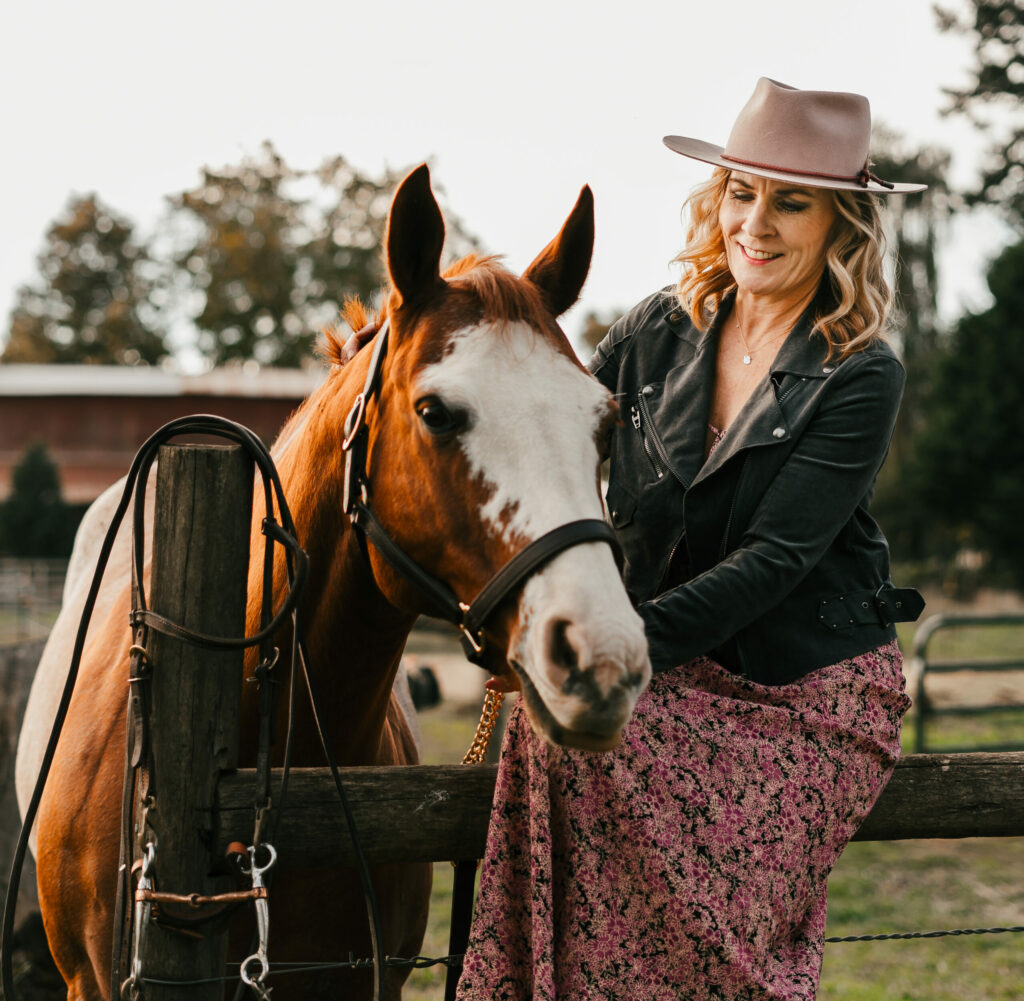 Charlotte Smith the Marketing and Mindset Coach for Farmers and host of The Profitable Mindset Podcast. A fifth-generation farmer with a significant background in marketing and branding, she has been honored as a food rebel, pioneer, and visionary by PBS’s Food Forward TV; a “Pioneering Leader in Raw Milk Production” by Mark McAfee, CEO Organic Pastures Dairy; and one of the 25 “World’s Most Influential Women in Food and Ag” by Food Tank. She developed the yearlong coaching program, “5X Your Farm Sales,” which teaches farmers the skills to make money on their farms and live calm, balanced lives through mindset coaching. You can learn more at her website: https://charlottemsmith.com/
Charlotte Smith the Marketing and Mindset Coach for Farmers and host of The Profitable Mindset Podcast. A fifth-generation farmer with a significant background in marketing and branding, she has been honored as a food rebel, pioneer, and visionary by PBS’s Food Forward TV; a “Pioneering Leader in Raw Milk Production” by Mark McAfee, CEO Organic Pastures Dairy; and one of the 25 “World’s Most Influential Women in Food and Ag” by Food Tank. She developed the yearlong coaching program, “5X Your Farm Sales,” which teaches farmers the skills to make money on their farms and live calm, balanced lives through mindset coaching. You can learn more at her website: https://charlottemsmith.com/
10:30 a.m. Building a Climate Resilient Farm: A Framework for Cut Flower Farmers
Session Description
Laura Lengnick, an award-winning soil scientist and founder of Cultivating Resilience, emphasizes that climate resilience in agriculture involves not only adapting to climate-induced challenges but also transforming food systems to proactively address climate change. She advocates for regenerative agricultural practices that enhance soil health, such as no-till farming, cover cropping, and diversified cropping systems, to build resilience against climate variability. Laura Lengnick’s framework for climate resilience in agriculture is detailed in her book Resilient Agriculture: Cultivating Food Systems for a Changing Climate. This framework emphasizes regenerative agricultural practices, whole-farm planning, climate risk management, and community and regional resilience to adapt to and mitigate climate change impacts.
During 2025, Laura partnered with three ASCFG Regional Directors to adapt her framework to accommodate the needs of cut flower farmers in three different and distinct regions. This session will provide an overview of the original research and work conducted, and the corresponding results, with practical guidance and advice for attendees who wish to integrate climate resilience strategies into their own farms. Please note that this is a hybrid panel session, meaning that it is a combined virtual and in person presentation.
Sponsored by:
Special Guest and Virtual Lecturer: Laura Lengnick
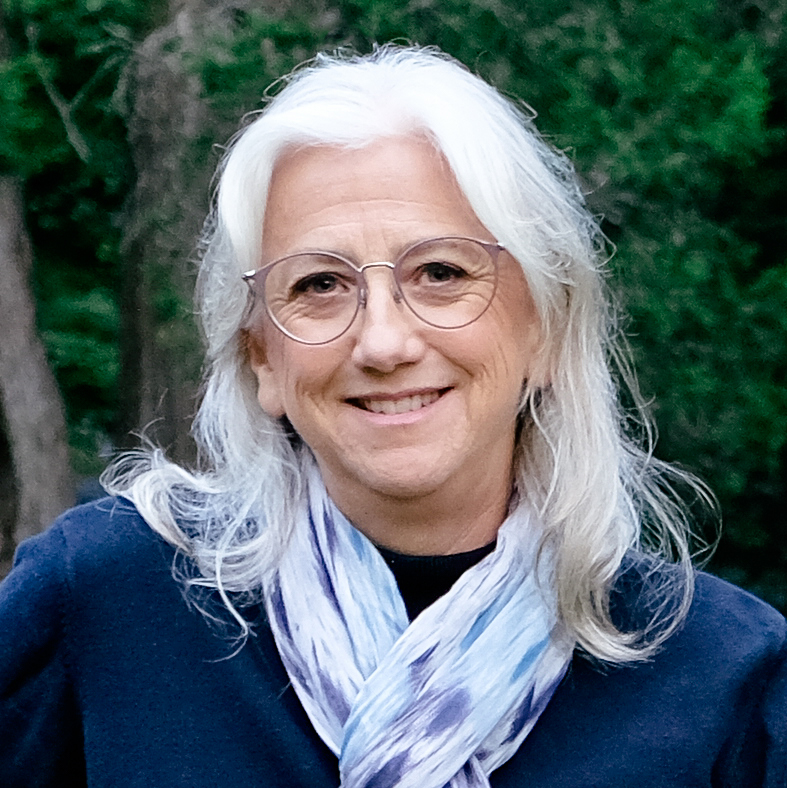 Laura Lengnick has explored agricultural and food system sustainability through 30 years of work as a federal researcher, policy-maker, adult educator, private consultant, community activist, and farmer to understand what it takes to move sustainability values into action on the farm, in community, and as a nation. When her text, Resilient Agriculture, was published in 2015, it was the first and is still the only book to apply social-ecological resilience theory to climate risk management in U.S. food and farming systems. Trained as a soil scientist, Laura’s innovative leadership in soil health and sustainable agriculture systems research at the Beltsville Agriculture Research Center in Maryland was nationally recognized with a USDA Secretary’s Honor Award in 2002.
Laura Lengnick has explored agricultural and food system sustainability through 30 years of work as a federal researcher, policy-maker, adult educator, private consultant, community activist, and farmer to understand what it takes to move sustainability values into action on the farm, in community, and as a nation. When her text, Resilient Agriculture, was published in 2015, it was the first and is still the only book to apply social-ecological resilience theory to climate risk management in U.S. food and farming systems. Trained as a soil scientist, Laura’s innovative leadership in soil health and sustainable agriculture systems research at the Beltsville Agriculture Research Center in Maryland was nationally recognized with a USDA Secretary’s Honor Award in 2002.
Noon to 1:20 p.m. Lunch
Lunch Details
 Attendees will have the opportunity to lunch their own lunches at the renowned and award-winning Sawmill Market, an artisan food hall across the street from the Hotel Albuquerque at Oldtown. The historic lumberyard building was transformed into a 34,000-square-foot food hall, outdoor gathering place, and community hall for Albuquerque, showcasing the beauty of New Mexico through food, diversity, and art. Today, the market houses 27 individual local merchants including a brewpub, a cocktail and wine bar, and a mercantile.
Attendees will have the opportunity to lunch their own lunches at the renowned and award-winning Sawmill Market, an artisan food hall across the street from the Hotel Albuquerque at Oldtown. The historic lumberyard building was transformed into a 34,000-square-foot food hall, outdoor gathering place, and community hall for Albuquerque, showcasing the beauty of New Mexico through food, diversity, and art. Today, the market houses 27 individual local merchants including a brewpub, a cocktail and wine bar, and a mercantile.
1:30 p.m. New Year, New Flowers: Cut Flower Varieties to Consider for 2026
Session Description

Photograph courtesy of CALS Magazine.
Don’t miss this exciting talk on the latest varieties from Dr. John Dole, NCSU Professor and ASCFG Executive Advisor! This session covers a plethora of blooms, fillers, woodies, and more to consider adding to your farm. Dr. Dole will also discuss the ASCFG Seed Trials and how members can participate.
Sponsored by:
Dr. John Dole, NCSU, Raleigh
Dr. Dole specializes in floricultural crops research and teaches floriculture courses including Greenhouse Management, HS 440, and Production of Floriculture Crops, HS 442. In addition, he serves as Executive Advisor for the Association of Specialty Cut Flower Growers, and co-authored Floriculture Principles and Species, 2nd edition, 2005, with Harold F. Wilkins. He began his academic career as an Assistant Professor in the Department of Horticultural Science and Landscape Architecture at Oklahoma State University. Dr. Dole moved to the Department of Horticultural Science at North Carolina State University in 2000, becoming Director of Graduate Programs in 2004 and Department Head in 2011. Dr. Dole has a long history of significant research, teaching, extension, and outreach contributions to the field of floriculture, most notably in the areas of production and postharvest handling of cut flowers, cuttings and poinsettias.
2:45 p.m. Pricing Driven by Quality: Better Blooms, Higher Prices
Session Description
The quality of blooms determines what you can charge, plain and simple. Learn how the price of your blooms is directly informed by petal quantity, uniformity, stem length, flush / stage, and much more. The renowned Scott Shepherd of the Flower Podcast, with over three decades of experience in the cut flower industry, will provide a florist’s perspective on what makes the perfect bloom. Attendees will see specific examples of cut flowers in various stages and their corresponding prices during this exciting session.
Scott Shepherd, The Flower Podcast
 Scott Shepherd is the host of The Flower Podcast, where he shares his expertise and passion for the floral industry. With years of experience in floral design, cultivation, and business, Scott provides valuable insights into the world of flowers, from trends and techniques to the stories behind florists and growers. Through his podcast, he connects with innovators and industry leaders, offering a platform for discussions on creativity, sustainability, and the future of floristry.
Scott Shepherd is the host of The Flower Podcast, where he shares his expertise and passion for the floral industry. With years of experience in floral design, cultivation, and business, Scott provides valuable insights into the world of flowers, from trends and techniques to the stories behind florists and growers. Through his podcast, he connects with innovators and industry leaders, offering a platform for discussions on creativity, sustainability, and the future of floristry.
4:15 p.m. Flowers from the Heart: Considering Nonprofit Partnerships and Programs
Session Description
Flowers offer undeniable therapeutic value to individuals and contribute to community well-being. And in 2021, Robert Washington-Vaughns founded the Black Men Flower Project 2021, a nonprofit organization using flower delivery and floral design events to enhance and elevate community care. Join this session to learn how the BMFP started, why they focus on outreach through events and strategic community partnerships, and how attendees can develop a flower-driven nonprofit program or partner with an existing program in their own region.
Robert Washington Vaughns, The Black Men Flower Project
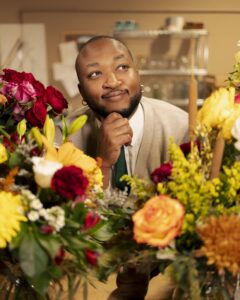 Robert Washington-Vaughns is the Founder of the Black Men Flower Project. The Black Men Flower Project was born out of a desire to change how Black men are seen in the world. Flowers symbolize a softness that’s often stripped away from Black men, and for Robert, flowers and floral design are about reclaiming that gentleness and reminding Black men that it’s okay to embrace beauty and care. Robert delivers bouquets to Black men at community events, sets up “bloom bars” where people can create their arrangements, and even partners with juvenile detention centers to help young Black boys send flowers to those they miss. These experiences have shown Robert just how powerful flowers can be as tools for connection and healing. Learn more about his work here: https://blackmenflowerproject.org/
Robert Washington-Vaughns is the Founder of the Black Men Flower Project. The Black Men Flower Project was born out of a desire to change how Black men are seen in the world. Flowers symbolize a softness that’s often stripped away from Black men, and for Robert, flowers and floral design are about reclaiming that gentleness and reminding Black men that it’s okay to embrace beauty and care. Robert delivers bouquets to Black men at community events, sets up “bloom bars” where people can create their arrangements, and even partners with juvenile detention centers to help young Black boys send flowers to those they miss. These experiences have shown Robert just how powerful flowers can be as tools for connection and healing. Learn more about his work here: https://blackmenflowerproject.org/
Photograph by Tira Howard Photography.
ASCFG Trade Show
Tuesday, January 13
5:00 – 9:00 p.m.
Your Trade Show experience will include appetizers and a cash bar.
Trade Show Description
The ASCFG Trade Show is an exciting event that brings together industry professionals, farmers, suppliers, and innovators from across the cut flower farming industry. This dynamic gathering showcases the latest cultivars, supplies, and solutions in floriculture and cut flowers. Attendees can explore a wide range of exhibits and network directly with exhibitors during this event. Whether you’re looking to stay ahead of the curve, discover new products, or find valuable business connections, the ASCFG Trade Show is the perfect place to grow your business!
Wednesday, January 14
Concurrent Sessions
7:15 a.m. Coffee and Refreshments
8:15 a.m. Adding U-Pick to Your Operation: The Good, the Bad, and the Beautiful
Session Description
Shannon Allen started a U-Pick program on Bloom Hill Farm, an operation that serves Uniontown, Ohio, with a farmstand, an Airbnb cottage, and wedding and event florals. Learn how the U-Pick operations fits into this well-rounded farm, along with its origins, profitability, and drawbacks or considerations. Shannon will provide specific recommendations to conference attendees about how to start a similar service on their own farm.
Shannon Allen, Bloom Hill Farm
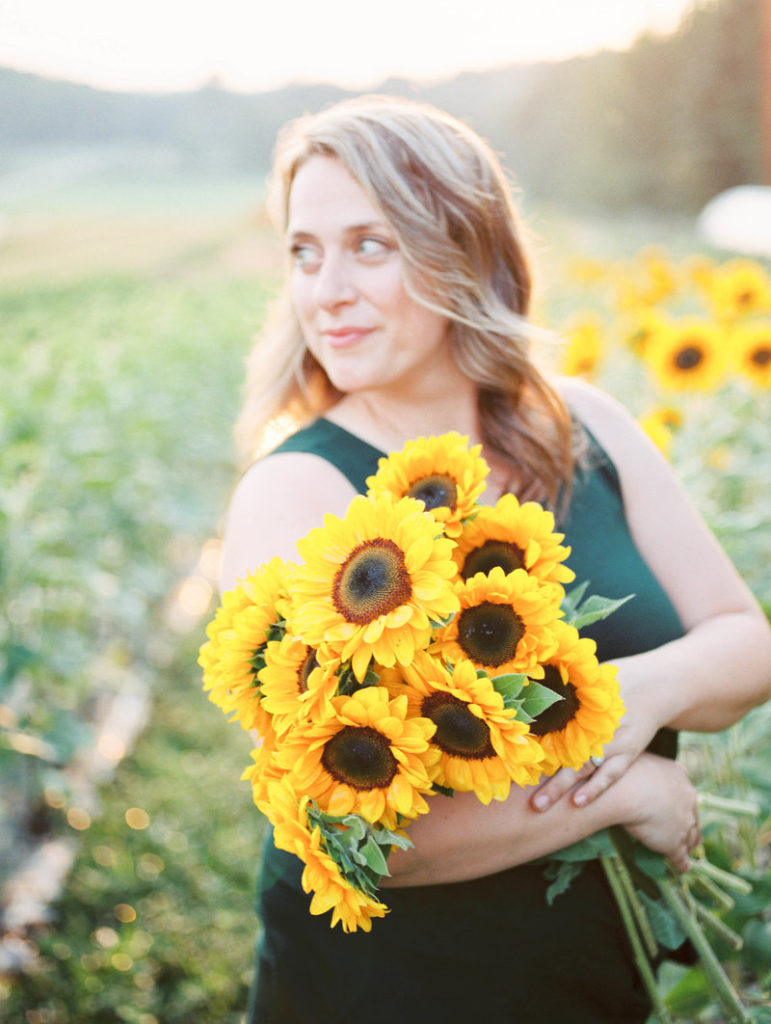 A North Canton, Ohio native, Shannon Allen went to the local high school and graduated from the University of Mount Union. A lover of all things beautiful, she thrives on flipping through the seed catalogs every winter, dreaming of the new flower varieties she can bring to the farm. Bloom Hill Farm offers a full suite of floral options for the community: Wedding and event florals, wholesale and grocery, CSA subscriptions, U-Pick, and a farm stand.
A North Canton, Ohio native, Shannon Allen went to the local high school and graduated from the University of Mount Union. A lover of all things beautiful, she thrives on flipping through the seed catalogs every winter, dreaming of the new flower varieties she can bring to the farm. Bloom Hill Farm offers a full suite of floral options for the community: Wedding and event florals, wholesale and grocery, CSA subscriptions, U-Pick, and a farm stand.
9:45 a.m. Maximize Production (and Profit!) on Your Small Plot Farm
Session Description
Small-plot farming is a versatile practice suitable for urban or rural locations. Join the renowned Mimo Davis for this session, who will share an overview of the modern techniques, challenges, and successful procedures she employs on her farm, Urban Buds. She will cover optimizing limited space for production, appropriate tools and growing techniques for small spaces, sales outlets, and more. Attendees will leave with new ideas on how to enhance operations on their current or prospective small-plot farm.
Sponsored by:
Mimo Davis, Flower Farmer and Co-Founder of Urban Buds, St. Louis, Missouri
 Mimo Davis is a flower farmer and teacher who co-founded Urban Buds, an urban flower farm in St. Louis, Missouri. Prior to founding Urban Buds, Mimo operated Wild Thang Farms for more than a decade. Located in Ashland, Missouri, her farm was considered the largest cut flower farm in the state at that time; Mimo also worked at the Missouri Wildflowers Nursery during that era, where she specialized in native plants. Recently featured in the BLOOM Imprint text, Black Flora: Profiles of Inspiring Black Flower Farmers, Mimo has a Master’s Degree in Horticulture from North Carolina A & T University.
Mimo Davis is a flower farmer and teacher who co-founded Urban Buds, an urban flower farm in St. Louis, Missouri. Prior to founding Urban Buds, Mimo operated Wild Thang Farms for more than a decade. Located in Ashland, Missouri, her farm was considered the largest cut flower farm in the state at that time; Mimo also worked at the Missouri Wildflowers Nursery during that era, where she specialized in native plants. Recently featured in the BLOOM Imprint text, Black Flora: Profiles of Inspiring Black Flower Farmers, Mimo has a Master’s Degree in Horticulture from North Carolina A & T University.
Photograph from the text Black Flora: Profiles of Inspiring Black Flower Farmers.
11:15 a.m. Deciding What to Grow: Prioritizing Your Crops for Your Market
Session Description
Sooner or later, every flower farmer comes face-to-face with this fact: You can grow anything but you can’t grow everything. Join Laura Beth Resnick of Butterbee Farm as she walks you through the important decisions you need to make to ensure that you’re growing the right crops for your market and your bottom line. Laura Beth will provide actionable advice and thoughtful strategies that you can implement on your farm — don’t miss this session!
Sponsored by:
Laura Beth Resnick, Butterbee Farms
 Laura Beth Resnick is the founder and owner of Butterbee Farm. In a previous life, she studied music performance before finding out that farming was her thing. She is passionate about creative entrepreneurship and enjoys running the farm, from weeding to customer relationships, and especially working with Butterbee’s wonderful part-time crew.
Laura Beth Resnick is the founder and owner of Butterbee Farm. In a previous life, she studied music performance before finding out that farming was her thing. She is passionate about creative entrepreneurship and enjoys running the farm, from weeding to customer relationships, and especially working with Butterbee’s wonderful part-time crew.
8:15 a.m. Recovering from Natural Disasters: A Step by Step Plan
Session Description
Natural disasters such as floods, droughts, wildfires, hurricanes, and tornadoes can devastate farming operations, threatening livelihoods, local economies, and your business. This session aims to equip farmers with practical strategies for disaster recovery, providing them with the tools to rebuild their operations. Join the highly experienced Small Farms Educator Meghan Baker of North Carolina State Extension as she provides a practical step-by-step recovery plan for the damages, costs, and organizational challenges incurred by natural disasters.
Meghan Baker, Small Farms Educator, NC State Extension

9:45 a.m. Building Your E-Mail Newsletter from Scratch
Session Description
With unpredictable algorithms, uncertain legislation, and changing demographics, communicating with consumers has moved away from social media and onto building an email-based community through which you can directly contact your customers. Attendees will learn from the renowned Charlotte Smith how to develop an e-mail newsletter from scratch and will afterwards feel confident in starting their own.
Charlotte Smith, The Profitable Mindset Podcast
 Charlotte Smith the Marketing and Mindset Coach for Farmers and host of The Profitable Mindset Podcast. A fifth-generation farmer with a significant background in marketing and branding, she has been honored as a food rebel, pioneer, and visionary by PBS’s Food Forward TV; a “Pioneering Leader in Raw Milk Production” by Mark McAfee, CEO Organic Pastures Dairy; and one of the 25 “World’s Most Influential Women in Food and Ag” by Food Tank. She developed the yearlong coaching program, “5X Your Farm Sales,” which teaches farmers the skills to make money on their farms and live calm, balanced lives through mindset coaching. You can learn more at her website: https://charlottemsmith.com/
Charlotte Smith the Marketing and Mindset Coach for Farmers and host of The Profitable Mindset Podcast. A fifth-generation farmer with a significant background in marketing and branding, she has been honored as a food rebel, pioneer, and visionary by PBS’s Food Forward TV; a “Pioneering Leader in Raw Milk Production” by Mark McAfee, CEO Organic Pastures Dairy; and one of the 25 “World’s Most Influential Women in Food and Ag” by Food Tank. She developed the yearlong coaching program, “5X Your Farm Sales,” which teaches farmers the skills to make money on their farms and live calm, balanced lives through mindset coaching. You can learn more at her website: https://charlottemsmith.com/
11:15 a.m. Margins and Metrics for Budgeting and Profitability
Session Description
We’re not just doing this for fun anymore: Tracking certain margins and metrics over time can take the guesswork out of profitability for a cut flower farm. To make a powerful and useful budget, join Michelle Elston from Roots Flower Farm as she teaches attendees how to organize your accounts and which metrics are especially useful to track. Please note that this session will be most helpful to growers with at least three years of financial records for their farm.
Michelle Elston, Roots Flower Farm
 Michelle Elston, founder and owner Roots Flower Farm, has loved plants and flowers for as long as she can remember. After studying plant science at Cornell University, she and her husband, Mike, moved to Massachusetts. There, they bought a garden center and stayed for 9 years. But after the birth of their first child, they realized that the best place to raise their kids was close to family roots. So they sold the garden center and moved back to Michelle’s hometown of Carlisle, Pennsylvania. What started as a small garden has evolved into a 10-acre farm that produces enough flowers for more than 25,000 supermarket Bouquets, 450 wholesale/Party Buckets, and numerous corporate events annually. Now, 16 years later, she realizes she never imagined her seed of an idea would turn into such a thriving small business.
Michelle Elston, founder and owner Roots Flower Farm, has loved plants and flowers for as long as she can remember. After studying plant science at Cornell University, she and her husband, Mike, moved to Massachusetts. There, they bought a garden center and stayed for 9 years. But after the birth of their first child, they realized that the best place to raise their kids was close to family roots. So they sold the garden center and moved back to Michelle’s hometown of Carlisle, Pennsylvania. What started as a small garden has evolved into a 10-acre farm that produces enough flowers for more than 25,000 supermarket Bouquets, 450 wholesale/Party Buckets, and numerous corporate events annually. Now, 16 years later, she realizes she never imagined her seed of an idea would turn into such a thriving small business.
12:30 to 1:50 p.m.
Lunch Details
 Attendees will have the opportunity to purchase their lunches at the renowned and award-winning Sawmill Market, an artisan food hall across the street from the Hotel Albuquerque at Oldtown. The historic lumberyard building was transformed into a 34,000-square-foot food hall, outdoor gathering place, and community hall for Albuquerque, showcasing the beauty of New Mexico through food, diversity, and art. Today, the market houses 27 individual local merchants including a brewpub, a cocktail and wine bar, and a mercantile.
Attendees will have the opportunity to purchase their lunches at the renowned and award-winning Sawmill Market, an artisan food hall across the street from the Hotel Albuquerque at Oldtown. The historic lumberyard building was transformed into a 34,000-square-foot food hall, outdoor gathering place, and community hall for Albuquerque, showcasing the beauty of New Mexico through food, diversity, and art. Today, the market houses 27 individual local merchants including a brewpub, a cocktail and wine bar, and a mercantile.
2:00 p.m. Profitability and Production for Thanksgiving, Christmas, and Valentine Blooms
Session Description
Need new ideas for winter production crops? Or wish to start winter crops? Join Rebecca Kutzer-Rice of Moonshot Farm as she shares valuable insights from her second year of the SARE Christmas flowers research grant, which includes an overview of profitability and production details. Furthermore, Rebecca will have the data from her ASCFG grant trial around winter scoops and anemones. Attendees will leave this session with an understanding of which winter crops can be most profitable and what’s involved in producing them.
Rebecca Kutzer-Rice of Moonshot Farm

3:30 p.m. Proactive Planning for Soil Health on Your Farm
Session Description
Soil health is the foundation of a successful flower farm, influencing plant growth, bloom quality, and long-term sustainability. In this session, Dr. Melanie Stock of Utah State University will provide guidance on conducting a soil test, how to evaluate the results, and then begin developing a soil improvement plan for your cut flower farm. Details will include soil testing, organic matter management, crop rotation, and eco-friendly amendments that promote soil vitality across a few different microclimates. Attendees will learn best practices for enhancing soil structure, increasing nutrient availability, and minimizing disease pressures, ensuring vibrant flowers and a resilient farm ecosystem.
Dr. Melanie Stock, Utah State University
Dr. Stock is a soil scientist. Her lab focuses on high-value crops and resource use efficiency to improve the environmental sustainability and economic viability of small farms. Her research interests include adapting cut flower crops for Utah from basic cultivation methods to nutrient management and physics-based season extension, overwintering, and water-use efficiency. Visit the Small Farms Lab at smallfarmslab.com and on Instagram (@usu_smallfarms)!
2:00 p.m. Why Plants Flower and How You Can Use This Information
Dr. John Dole, NCSU, Raleigh
Understanding the role of photoperiod—the duration of light exposure in 24 hours—is crucial for optimizing plant growth and productivity. This session will explore how plant species respond to varying light conditions, influencing key processes such as flowering, germination, and fruiting. Attendees will learn how manipulating light exposure can enhance crop yields and support profitable farming practices.
Sponsored by:
Dr. John Dole, NCSU
Dr. Dole specializes in floricultural crops research and teaches floriculture courses including Greenhouse Management, HS 440, and Production of Floriculture Crops, HS 442. In addition, he serves as Executive Advisor for the Association of Specialty Cut Flower Growers, and co-authored Floriculture Principles and Species, 2nd edition, 2005, with Harold F. Wilkins. He began his academic career as an Assistant Professor in the Department of Horticultural Science and Landscape Architecture at Oklahoma State University. Dr. Dole moved to the Department of Horticultural Science at North Carolina State University in 2000, becoming Director of Graduate Programs in 2004 and Department Head in 2011. Dr. Dole has a long history of significant research, teaching, extension, and outreach contributions to the field of floriculture, most notably in the areas of production and postharvest handling of cut flowers, cuttings and poinsettias.
3:30 p.m. Developing an Integrated Pest Management (IPM) Plan for Your Farm
Session Description
In this session, Sarah Head of Eda Creek Farm will guide attendees through the essential components of Integrated Pest Management (IPM) plans tailored for cut flower farming. Participants will learn about monitoring techniques, biological controls, eco-friendly and conventional pesticide options, and how to build a personalized plan for your farm. Attendees will gain practical insights into developing and managing effective IPM programs that safeguard flowers from pests and enhance crop quality and yield.
Sarah Head of Eda Creek Farm
Sarah Head is the owner and flower farmer behind Eda Creek Farm, a small, sustainable farm in Oregon City, Oregon. After a 15-year career in education, Sarah shifted her focus to farming, blending her passion for resilience, community, and beauty. At Eda Creek Farm, she grows cut flowers, specialty vegetables, and raises animals using organic practices that prioritize soil health and biodiversity. She sells through a flower CSA, wholesale markets, and events, and is an active member—and the West and Northwest Regional Director—of the Association of Specialty Cut Flower Growers.
